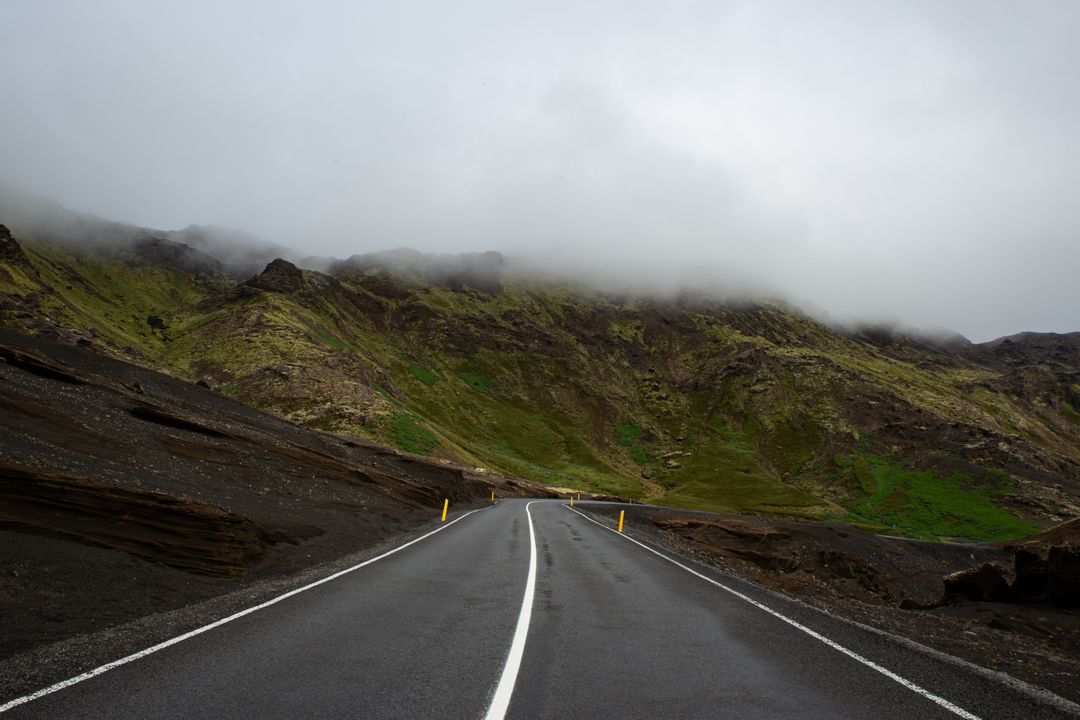alugha goes podcasts
Thanks to alugha, it is now possible to listen to podcasts, to enregister them as well as to trancribe and to multilingualise them
The days are getting shorter and we long for stories. So let's look to Iceland, the land from which the sagas come, and also consider its special language: Icelandic.

Read this article in: Deutsch, English, Français
Estimated reading time:11minutesWhen I started to take an interest in Iceland and its language a few years ago, I was laughed at. But nowWhen I started to take an interest in Iceland and Icelandic a few years ago, I was laughed at. But now Iceland and the Icelandic language are really in fashion. The rugged yet romantic landscape of hot springs, ice, volcanoes and geysers enchants almost every mind, as do the horses, the northern lights and the myths about trolls and elves.
The Icelandic language is often considered difficult to learn, but its sound is beautiful. So let's take a closer look.
North Germanic language
~ 300 000 speakers
Today's Icelandic goes back to Old Icelandic
The first settlers on Iceland came to a large extent from the south-west coast of Norway. For this reason, Old Icelandic and Old Norwegian differed only marginally.
After that, Icelandic developed largely in isolation. The same applies to Faroese.
Only few dialects and these mostly differ only phonetically-phonologically
The Icelandic vocabulary is rich and very differentiated. This is evident, for example, in words from the animal world.
"Lamb" can be translated as gimbill or gimbur, depending on whether it is a male or a female lamb.
The seal can also be translated differently depending on whether it is a male (brimill) or a female (urta)
However, a diverse vocabulary in the animal world is common in many languages. It gets interesting with the word "spotted", which is different in Icelandic depending on which animal it refers to: skjöldóttur is a spotted cow, felkkóttur a spotted sheep, skjóttur when referring to a horse.
Another special feature of the Icelandic vocabulary is language purism. The aim here is to keep the number of borrowings from other languages as low as possible. New terms are created from the existing vocabulary. The best-known example of this is the word tölva ("computer"), which was created from the words tala (number) and völva (fortune teller). However, an increase in Anglicisms can also be observed in this language, and it is impossible to stop it completely.
Of course, the sounds are largely responsible for the sound of a language. Icelandic has a large phoneme inventory. Stress is always placed on the first syllable, which gives the language a certain rhythmic pattern.
A little game here on the side: The first person to pronounce "Eyjafjallajökull" correctly is the winner.
This is perhaps also the part that makes the Icelandic language so difficult. Icelandic is a highly inflectional language with four cases, three genera, the definite article, but no indefinite. Nouns and adjectives inflect according to genus, numerus, case and definiteness. Icelandic is thus more inflectional than German. Verbs are inflected according to time, mode, person, voice and numerus.
Icelandic is a V2 language. This means that the verb always comes second. All the other constituents can be swapped as desired. This corresponds to the word order of the German main clause. In the German subordinate clause, however, the verb is at the end. This is not the case in Icelandic. In Icelandic poetry, however, one also finds other word order. Poetry, however, is a special case in very many languages.
What may sound strange to learners of Icelandic is the quirky case. This is a lexical case in which complements in an object case take on the properties of subjects. For a long time, Icelandic was thought to be the only language that used this phenomenon, but nowadays we know that there are a number of languages that have quirky cases.
What else would you like to know about Icelandic?
#alugha
#everyoneslanguage
#multilingual
Sources:
https://de.wikipedia.org/wiki/Isl%C3%A4ndische_Sprache (04.11.2021, 13:59)
https://de.wikipedia.org/wiki/Lexikalischer_Kasus (04.11.2021, 14:00)
https://en.wikipedia.org/wiki/Icelandic_grammar (04.11.2021,13:59)
https://en.wikipedia.org/wiki/Quirky_subject (04.11.2021, 14:01)
Photo by Mads Thomsen from Pexels
| Code | Name | Views | Percentage |
|---|---|---|---|
| eng | English | 52 | 54.74% |
| deu | Deutsch | 37 | 38.95% |
| fra | Français | 6 | 6.32% |
| Total | 95 | 100% | |
Thanks to alugha, it is now possible to listen to podcasts, to enregister them as well as to trancribe and to multilingualise them
Podcasts enjoy great popularity. However, you still don't find transcripts for them that often. But why do you actually need a podcast transcript? And how do I create one?
The year 2023 has started and the alugha team wishes you a happy, healthy and successful new year. We also have a tip for you: start your year multilingually!